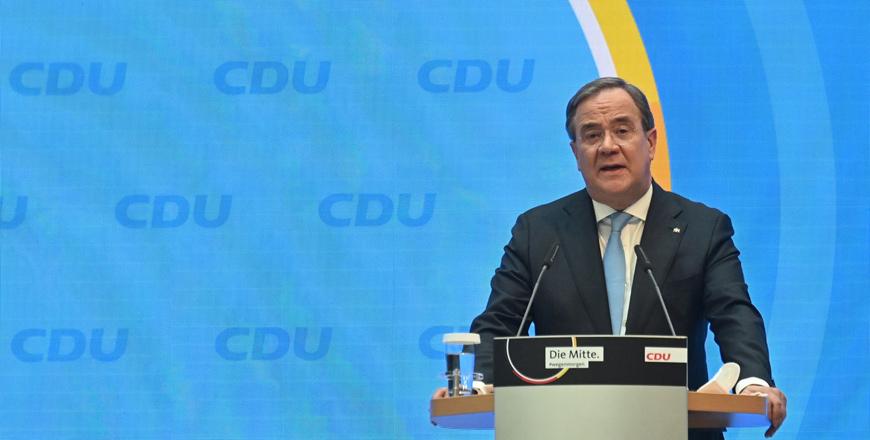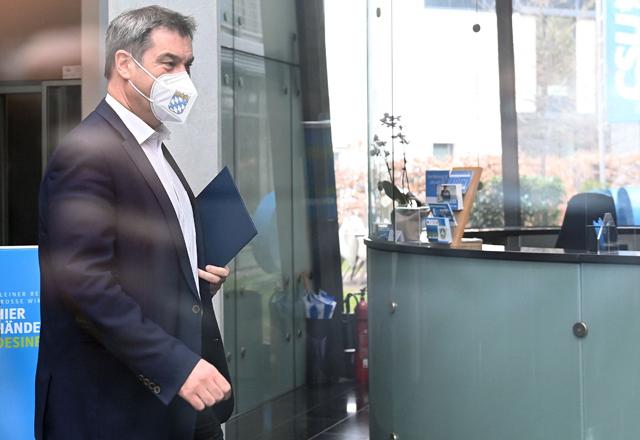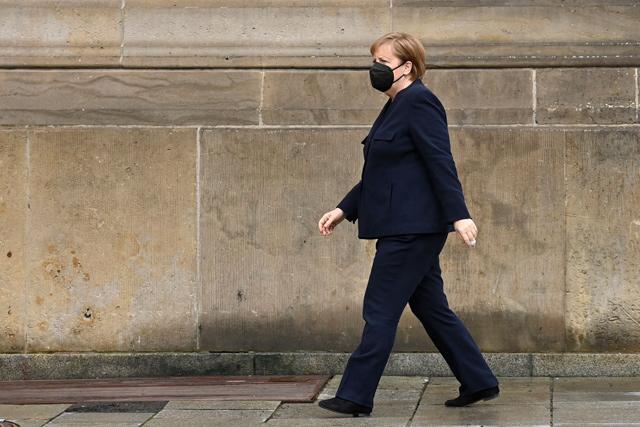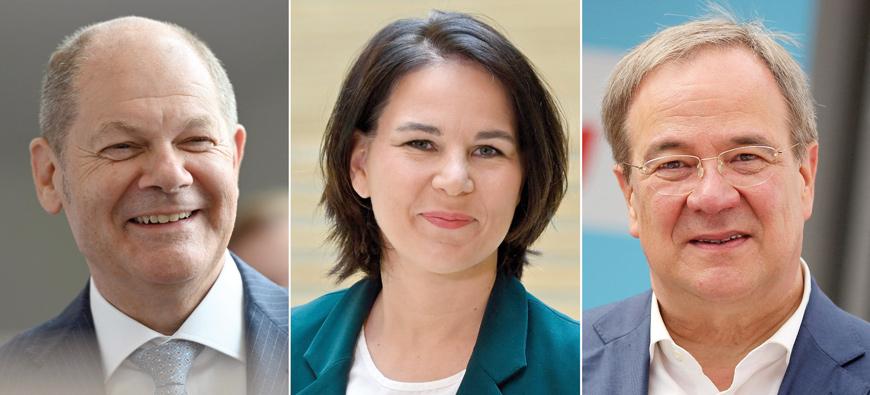You are here
Conservatives confirm Laschet as candidate for Merkel's crown
By AFP - Apr 21,2021 - Last updated at Apr 21,2021

North Rhine-Westphalia's State Premier and head of Germany's conservative Christian Democratic Union (CDU) Party Armin Laschet gives a press conference on Tuesday at the headquarters of the conservative CDU Party in Berlin (AFP photo)
BERLIN — Angela Merkel's conservatives on Tuesday confirmed Armin Laschet's disputed nomination as their chancellor candidate in September's election, as his rival conceded following a bitter battle that has left the bloc deeply divided.
Hours after Laschet, 60, won the backing of the CDU Party's leadership, Bavaria's state premier Markus Soeder finally backed down after a week of digging his heels in.
"The dice have fallen. Armin Laschet is the chancellor candidate" of the conservative CDU-CSU alliance, said Soeder.
"There are days for discussion. There are days for decision. That has all happened and now it is important to look together into the future," he said, adding that he wished Laschet success and offered him the backing of Bavarian sister party CSU.
The climbdown came after nine days of backbiting among MPs and leading figures within the conservative bloc that pushed the once-stable alliance to the brink of implosion just as Merkel is about to bow out from politics after 16 years in power.
While long-time Merkel ally Laschet received the CDU's leadership's backing, 54-year-old Soeder commands far stronger support among the public.
A recent opinion poll commissioned by the Bild daily on Germany's most popular politicians even had Soeder topping the charts, just above Merkel, while Laschet languished in 12th place.
But the premier of Germany's most populous state, North Rhine-Westphalia, has a history of coming back from behind.
'Passionate European'
A sworn Merkel loyalist, Laschet famously backed the chancellor during the fallout from the 2015 refugee crisis.
Despite a souring mood at that time over the arrival of more than a million asylum seekers, Laschet seized North Rhine-Westphalia state — a sprawling industrial region and a Social Democrats stronghold — in a regional election in 2017, handing a major boost to the CDU.
Laschet, a fluent French speaker and self-described “passionate European”, also prevailed in a battle for the CDU chief post in January, seeing off a fierce challenge from Friedrich Merz.
Yet, he appeared to chart a course away from Merkel in March when he defied the chancellor’s pleas for harder shutdown measures from the leaders of Germany’s 16 states.
Laschet defended North Rhine-Westphalia’s broad interpretation of national virus measures, calling for “more freedom and flexibility”.
With a recent poll by public broadcaster ARD showing 44 per cent of Germans in favour of Soeder as most qualified as the CDU-CSU’s chancellor candidate and Laschet only taking 15 per cent, the 60-year-old will have his work cut out for him as he seeks Germany’s top job.
But first, he would have to reunite his troops behind him, something that senior CDU members have said could prove complicated.
After a late-night video conference on Monday where Laschet secured the backing of the CDU board, Volker Bouffier, regional premier of Hesse, warned the decision “may not be accepted” by the party rank and file.
The squabbles have damaged the alliance’s standing at a time when Europe’s biggest economy is struggling to end a pandemic that has killed 80,000 people and ravaged thousands of businesses and livelihoods.
The chaos in the conservative camp also stands in stark contrast to the centre-left Green Party, polling second behind the CDU-CSU, which on Monday announced co-chair Annalena Baerbock as its chancellor candidate at a slick press event with no signs of strife.
Related Articles
BERLIN — The leader of Angela Merkel's party warned of a "polarising" election campaign on Monday as Germany's conservatives prepared for fr
BERLIN — The two conservative leaders locked in an increasingly vicious battle for Angela Merkel’s crown struggled to reach a deal by their
BERLIN — Germany's centre-left Social Democrats (SPD) edged ahead in the race towards September elections on Tuesday, beating Angela Merkel'














